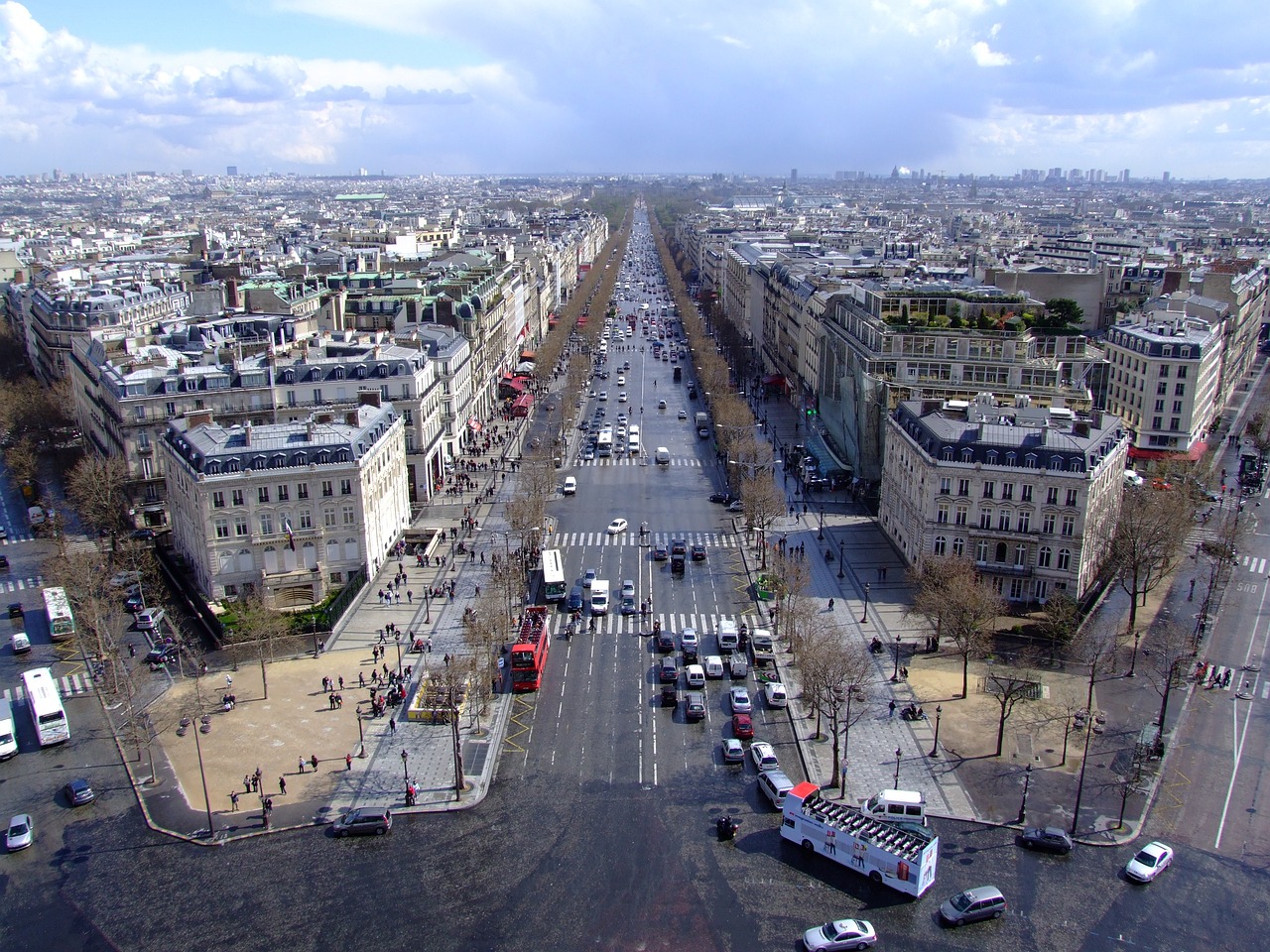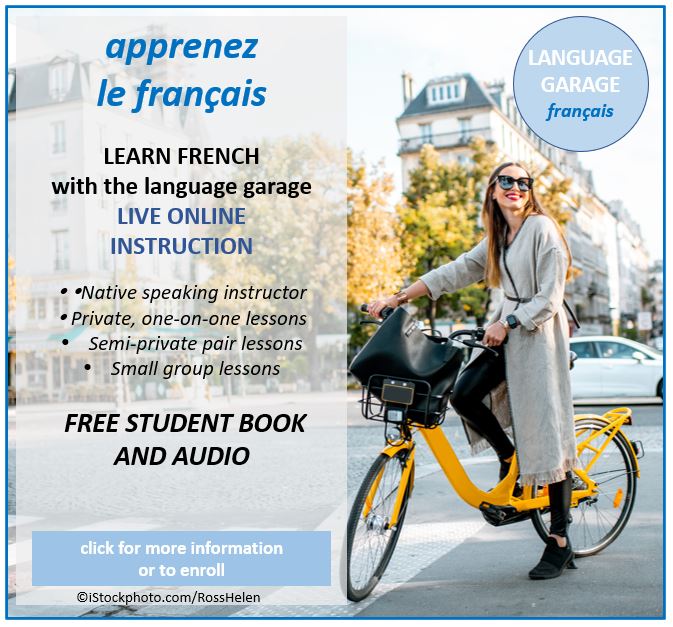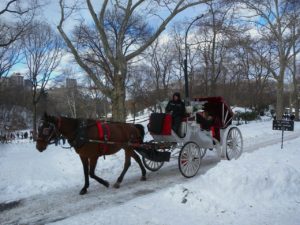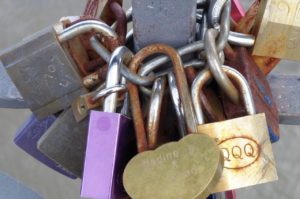Image by David Mark from Pixabay
In this post we’ll look at some French vocabulary related to cars and driving.
Ma voiture: My car
Let’s start with some basic vocabulary: la voiture (car), conduire; rouler; prendre la voiture; aller/se rendre en voiture (to drive), l’essence (f.) (gas/petrol), prendre de l’essence (to get gas), faire le plein (to fill the gas tank), la ceinture (de sécurité) (seatbelt), le garage (garage), démarrer la voiture (to start the car), garer la voiture (to park the car), le parking (parking lot), la place de stationnement; une place/un endroit pour se garer (parking space), éteindre le moteur (to turn off the engine).
- As-tu une voiture ?
Do you have a car? - J’ai acheté une nouvelle voiture.
I bought a new car. - Je roule beaucoup/Je fais beaucoup de route chaque semaine.
J’utilise beaucoup la voiture toutes les semaines.
I drive a lot every week. - Mets ta ceinture. Veuillez attacher votre ceinture (de sécurité).
Put on your seatbelt. - J’ai besoin de prendre de l’essence.
I need to get gas. - Le plein s’il vous plaît.
Fill the tank, please. - Est-ce que vous vous garez dans un garage ou dans la rue ?
Do you park in a garage or on the street? - Je n’arrive pas à trouver une place de parking.
I can’t find a parking space.
Ouvre la porte ! Unlock the car door!
Now let’s look at some vocabulary for parts of a car. la porte de la voiture (car door), le pare-brise (windshield), les essuie-glaces (m.) (windshield wipers), monter/baisser les vitres (f.). (to put up/down the window), le coffre (trunk/boot), le capot (hood/bonnet), le volant (steering wheel), le siège avant (front seat), le siège/la banquette arrière (back seat), les phares (m.) (headlights), les freins (m.) (brakes), le moteur (engine), le clignotant (blinker, turn signal), les feux de stop (brake lights), changer l’huile (moteur) (to change the oil), le garagiste; le mécanicien/mécano (fam.) (mechanic).
- Les valises sont dans le coffre.
The suitcases are in the trunk. - Les enfants s’assoient sur la banquette arrière.
The kids are sitting in the back seat. - Il fait froid ! Ferme les vitres et mets le chauffage.
It’s cold! Put up the windows and turn on the heat. - Il fait chaud ! Ouvre les vitres ou mets la clim(atisation).
It’s hot! Open the windows or put the air conditioning on. - Il pleut. Il faut mettre les essuie-glaces.
It’s raining. I need to put on the windshield wipers. - Il fait noir. Il faut allumer les phares.
It’s dark. I need to put on the headlights. - Le moteur est sous le capot.
The engine is under the hood. - Ma voiture a besoin de nouveaux freins.
My car needs new brakes. - Mets ton clignotant et tourne à la prochaine rue.
Put on your blinker (turn signal) and turn at the next street. - Je dois changer l’huile dans ma voiture. Je dois fair la vidange.
I need to change the oil in my car. - J’ai un souci/problème avec ma voiture. Je dois trouver un mécanicien.
Something is wrong with my car. I need a mechanic.
Tourne à droite au feu. Turn right at the traffic light.
Now let’s see some vocabulary that describes what we do when we drive. aller tout droit (to drive straight), tourner à gauche/droite (to turn left/right), faire marche arrière; reculer (to reverse), changer de vitesses (to change gears), le feu (tricolore) (traffic light), le stop (stop sign), la limite de vitesse (speed limit), klaxonner (to honk the horn).
- Tu vas trop vite. Ralentis !
You’re driving too fast. Slow down! - Tu vas trop lentement. Accélère !
You’re driving too slowly. Speed up! - Quelle est la limite de vitesse ?
What is the speed limit? - Tourne à gauche au prochain feu.
Turn left at the next traffic light. - Il y a un panneau stop. Arrête-toi !
There’s a stop sign! Stop! - Pourquoi klaxonne-t-il ?
Why is he honking his horn? - Elle a fait marche arrière et elle est partie.
She reversed and drove away.
Sur la route: On the road
Now let’s look at some things you’re likely to see when you’re on the road. la rue (street), l’autoroute (f.) (highway), la sortie d’autoroute (highway exit), entrer sur l’autoroute (to get on the highway), le péage (toll booth), le pont (bridge), le panneau de signalisation (road sign), le rond-point (traffic circle/roundabout), le camion (truck), dépasser une voiture (to pass a car), la voie (lane), la station essence (gas station), l’embouteillage (m.); le bouchon (traffic jam), mettre une heure/deux heures pour arriver à X (to take one hour/two hours to drive to X.)
- Comment puis-je rejoindre l’autoroute ?
How do I get to the highway? - Sortez de l’autoroute à la prochaine sortie.
Get off the highway at the next exit. - Il y a un péage après le pont.
There’s a toll booth after the bridge. - Qu’est-ce que dit ce panneau ?
What does it say on that sign? - Où se trouve la station essence la plus proche ?
Where is the nearest gas station? - Cette voiture est très lente. Dépassons-la.
This car is driving very slowly. Let’s pass it. - Ne change pas tout de suite de voie, il y a un camion derrière toi.
Don’t change lanes yet, there’s a truck behind you. - La circulation est vraiment mauvaise à cette heure de la journée.
Traffic is really bad this time of day. - On est coincé dans un embouteillage.
We’re stuck in a traffic jam. - Combien de temps faut-il pour se rendre en voiture à l’aéroport ?
How long does it take to drive to the airport?
J’ai un pneu crevé. I have a flat tire.
Sometimes things don’t always go perfectly well when we drive. prendre une mauvaise direction (to make a wrong turn), être perdu(e) (to be lost), un pneu crevé (a flat tire), être en panne d’essence (to be out of gas), avoir un accident (to have an accident), freiner brutalement/ brusquemen, écrasez la pedale de frein (fam.) (to slam on the brakes), faire une embardée (to swerve), glisser (to slide), déraper (to skid), une batterie à plat (a dead battery), rentrer dans/heurter un arbre/une autre voiture (to hit a tree/another car), avoir une amende (to get a ticket).
- J’ai pris une mauvaise direction. On est perdu.
I made a wrong turn. We’re lost. - Nous avons un pneu crevé.
We have a flat tire. - On a eu un accident mineur.
We had a minor accident. - Le conducteur devant moi a freiné brusquement.
The driver ahead of me slammed on his/her brakes. - Un chien a couru sur la route, et j’ai fait une embardée pour l’éviter.
A dog ran into the road, and I swerved to avoid it. - Les routes sont verglacées, donc la voiture glisse.
The roads are icy, so the car is sliding. - On a dérapé et on s’est arrêté.
We skidded to a stop. - La voiture ne démarre pas. La batterie est à plat.
The car won’t start. The battery is dead. - J’ai heurté un arbre/une autre voiture.
I hit a tree/another car. - J’ai fait en excès de vitesse et j’ai eu une amende.
I was speeding and got a ticket.
Taxi ! Taxi!
Here are some vocabulary items and expressions that you can use for public transportation. le taxi (taxi), le bus (bus), le tarif (fare), l’arrêt de taxi (taxi stand), l’arrêt de bus (bus stop), monter dans le bus (to get on the bus), descendre du bus (to get off the bus).
- Où puis-je trouver un taxi ?
Where can I get a taxi? - Je voudrais aller à la gare, s’il vous plaît.
I would like to go to the train station, please. - S’il vous plaît, emmenez-moi à cette adresse.
Please take me to this address. - Quel est le tarif ? Combien ça coûte pour aller à… ?
How much is the fare? - Veuillez vous arrêter ici.
Please stop here. - Y a-t-il un bus qui va de l’aéroport au centre ville ?
Is there a bus from the airport to the city center? - Nous descendons au prochain arrêt.
We get off at the next stop.
Où puis-je louer une voiture ? Where can I rent a car?
Let’s close with some vocabulary and expressions that you can use when renting a car. louer une voiture (to rent a car), trois portes, cinq portes (two-door, four-door; literally three and five, counting the hatchback), quatre roues motrices; 4X4 (quatre quatre) (four-wheel drive), transmission automatique (automatic transmission), transmission manuelle (manual transmission), l’assurance (f.) (insurance), le permis de conduire (driver’s license), prendre la voiture (to pick up the car), rendre la voiture (to return the car), kilométrage/limite de kilométrage (kilometrage limit).
- Nous aimerions louer une voiture.
We would like to rent a car. - Nous voudrions une trois portes/une cinq portes s’il vous plaît.
We would like a two-door/four-door car please. (includes hatchback) - Nous avons besoin d’un (véhicule à) quatre roues motrices.
We need a four-wheel drive vehicle. - Préférez-vous une transmission automatique ou manuelle ?
Do you prefer automatic or manual transmission? - Voici mon permis de conduire.
Here is my driver’s license. - Quel est le montant de l’assurance incluse ?
How much insurance is included? - Est-ce qu’il y a une limite de kilométrage par jour ?
What is the daily mileage/kilometrage limit? - Puis-je prendre/rendre la voiture à l’aéroport ?
Can I pick up/return the car at the airport?
Do you want to learn French?
Check out our other posts on French language, culture, and more. And if you’re looking for convenient and affordable live French lessons with a real teacher, check out The Language Garage. Our lessons are given online in a virtual classroom, so it doesn’t matter where you live or work. We can come to you. And we have flexible options, with a free trial so that you can decide if there’s a fit. Check us out!





